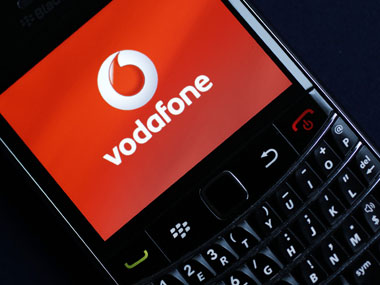The deal between Vodafone and Piramal Healthcare for the latter to buy a 5.5 percent stake in the telecom giant for $640 million is curious. It raises three questions, about policy, about Indian businessmen’s intentions, and about commonsense.
First, why should a healthcare company be investing in a telephone company?
Second, why should the telecom company be happy to let the other company to profit at its expense?
Third, does it make sense to have an equity cap in any sector if all it accomplishes is a cash transfer from foreign to Indian businessmen? Are we so starved of capital that we must allow this unfairness?
[caption id=“attachment_58682” align=“alignleft” width=“380” caption=“The deal between Vodafone and Piramal Healthcare raises three questions, about policy, about Indian businessmen’s intentions, and about commonsense. Reuters”]
 [/caption]
[/caption]
Let’s see why this Vodafone-Piramal marriage of convenience has been entered into in the first place.
In June-July this year, Vodafone ended its previous marriage of inconvenience with the Ruias of Essar by paying them $5.46 billion to return their 33 percent stake in the company - $400 million more than agreed earlier. It was clear they were paying good money to get the pesky Ruias off their backs.
But in doing so, they ended up raising their stake to 75.35 percent - a notch above the 74 percent upper limit prescribed for foreign holdings in telecom. This shows up the idiocy of the policy in the first place.
Impact Shorts
More ShortsHow is 75.35 percent worse than 74 percent - though 26 percent is a blocking minority under Indian law - when the other holdings are anyway dispersed between two other players, IDFC and Analjit Singh? Sure, the letter of the law has to be followed. But that’s about it. It does not make the law itself very sensible.
Now, Vodafone has roped in Piramal to conform to the same law. But here’s the funny bit: when Vodafone got the Ruias out, the payment essentially valued the company at $16 billion.
But when they invited Piramal in, at $640 million for 5.5 percent, they are essentially valuing the company at $11.6 billion. How did $4.4 billion vanish from Vodafone valuations in just one month?
Not only that. When Vodafone bought Hutch - Vodafone India’s previous avatar when it was owned by Hutchison Whampoa - it had valued the company at $19.3 billion.
At that time (2007), Vodafone had valued a company with 23 million subscribers at $19.3 billion. Today, with subscribers nudging 150 million, the valuation is less than two-thirds that level. Strange, very strange.
Now, let’s come to Piramal. Why is it so keen on buying a 5.5 percent stake in a telecom company in which it will have no board representation, and which it can never hope to own or run?
The answer: it has got sackfuls of cash after selling Piramal Healthcare’s domestic drug formulations business to Abbott for a humongous $3.8 billion (over Rs 17,000 crore). This money is burning a hole in Ajay Piramal’s pocket, as it can’t be deployed profitably anywhere else for the time being.
Vodafone’s invite is an invitation to print money. Piramal will either exit at a huge premium in two years when Vodafone makes an equity offer in the Indian markets, or he will get $900 million back in cash from Vodafone if the equity offer does not happen. Heads he wins, tails he wins.
What is obvious is that the telecom laws have made Vodafone a sucker twice over. First, it was forced to hand over cash to the Ruias. Now, it is forced t0 invite someone like a Piramal to make money for no risk at all.
Surely, there is something wrong here. The purpose of the Indian telecom policy is not to allow Indian businessmen to demand a pound of flesh from foreign investors just for doing nothing.
The purpose, presumably, is to ensure some kind of control over an asset which has security implications. Maybe, it would be a good idea to introduce a golden share which allows the Indian government a veto on some decisions of the company, while allowing Vodafone to obtain full economic benefits from its ownership of the company.
Handing money over to some local moneybags or the other does not make India a fair investment destination.
)